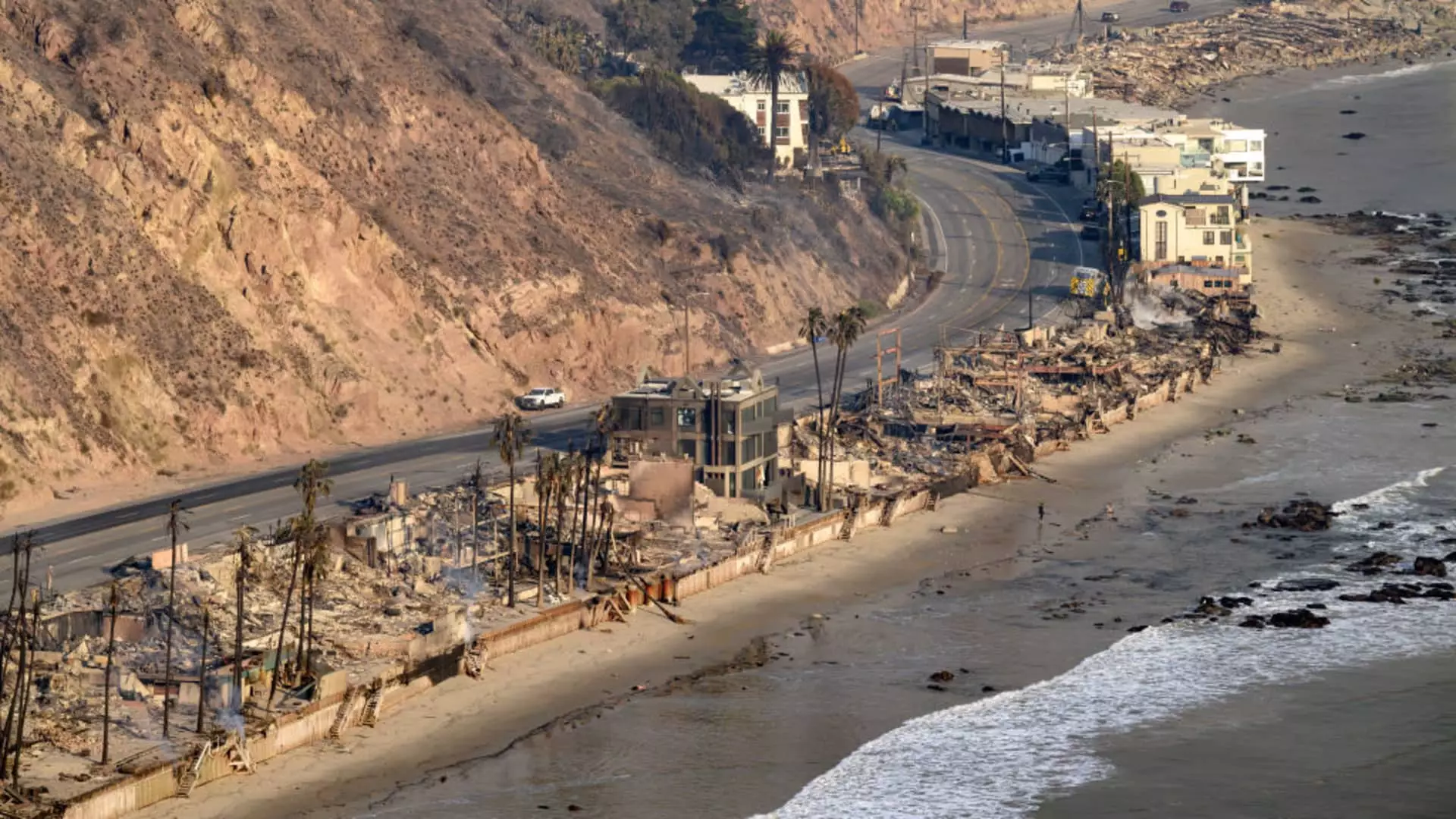The relentless spread of wildfires in the Los Angeles area has prompted major airlines to extend travel waivers, allowing travelers impacted by this natural disaster to modify their flight arrangements without incurring extra fees. American Airlines, United Airlines, Southwest Airlines, and JetBlue Airways are among the carriers responding to the crisis, which has left the city grappling with significant infrastructural challenges, including power outages, water supply issues, and the destruction of over 10,000 homes and structures. These wildfires have created a situation in which the airlines are not only prioritizing customer service but also addressing the pressing safety concerns that affect the broader community.
As of the last reported updates, flight operations at Los Angeles-area airports, including Hollywood Burbank, Los Angeles International Airport, Ontario International Airport, and John Wayne Airport, remained stable despite the ongoing threat posed by wildfires. Airlines are showing flexibility by allowing rebooking options up to January 20 without charging additional fees. Southwest Airlines has gone a step further by permitting customers the option to alter their destinations to other cities within California, such as Palm Springs and San Diego. This proactive approach underscores the airlines’ commitment to accommodating travelers during such uncertain times.
Economic Effects and Shifts in Travel Demand
The wildfires not only impact immediate travel logistics but also influence consumer behavior in the air travel market. Delta Air Lines has reported a noticeable decline in flight sales to Los Angeles, a critical hub known for both business and leisure travel. However, the airline’s president, Glen Hauenstein, noted that while bookings are down, cancellations have not surged in a similar manner. This situation suggests that potential travelers may be postponing their trips instead of completely abandoning them. Hauenstein optimistically mentioned historical trends where travel demand often spikes following natural disasters, as people return to the affected areas for recovery and rebuilding efforts.
While the immediate effects of the wildfires create challenges, the long-term implications for airlines and the travel industry could be more complex. Past recoveries from such catastrophic events have often led to a resurgence in travel, as affected communities initiate rebuilding processes that encourage tourism and business. The sentiment shared by Hauenstein reflects a nuanced understanding of disaster management from an industry perspective—acknowledging the human tragedy while preparing for potential economic resurgence as recovery takes its course.
In the face of adversity, airlines are also displaying a community-centric approach, recognizing that the impact of the wildfires extends beyond mere profit margins. There is a sense of solidarity as carriers express their support for those affected, emphasizing their hope for recovery and resilience in the face of daunting challenges. The collaborative efforts between airlines and local agencies during this crisis highlight the importance of responsive customer service in the airline industry while also reflecting a profound understanding of the social ramifications of such disasters. As travelers navigate this turbulent period, the flexibility and compassion shown by airlines are critical components in fostering trust and reassurance during uncertain times.

